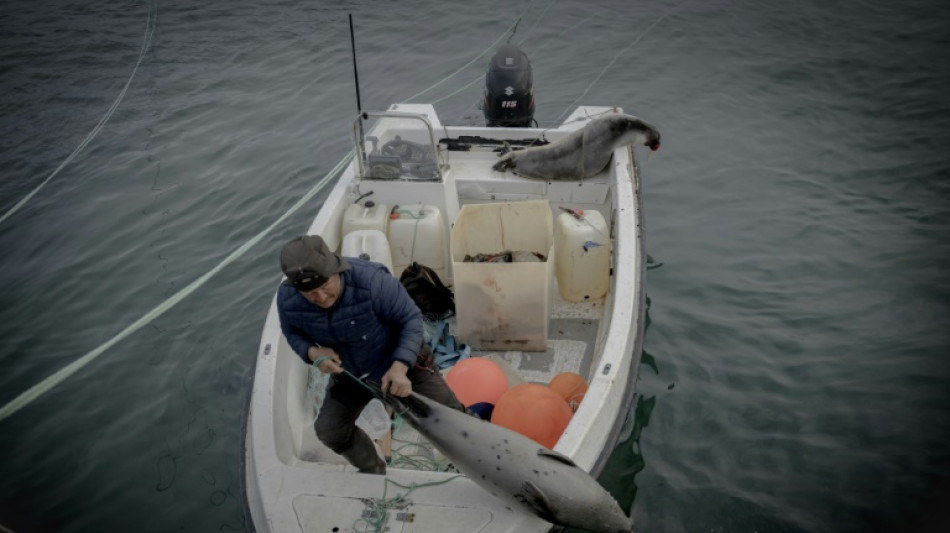
-
 Japan election results confirm super-majority for Takaichi's party
Japan election results confirm super-majority for Takaichi's party
-
Unions rip American Airlines CEO on performance

-
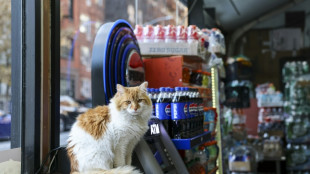 New York seeks rights for beloved but illegal 'bodega cats'
New York seeks rights for beloved but illegal 'bodega cats'
-
Blades of fury: Japan protests over 'rough' Olympic podium
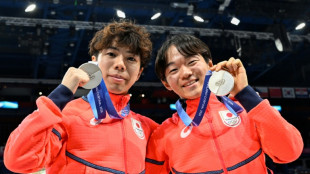
-
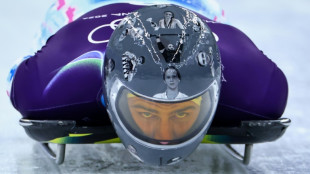 Zelensky defends Ukrainian athlete's helmet at Games after IOC ban
Zelensky defends Ukrainian athlete's helmet at Games after IOC ban
-
Jury told that Meta, Google 'engineered addiction' at landmark US trial

-
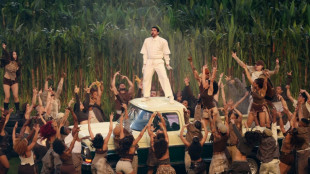 Despite Trump, Bad Bunny reflects importance of Latinos in US politics
Despite Trump, Bad Bunny reflects importance of Latinos in US politics
-
Australian PM 'devastated' by violence at rally against Israel president's visit

-
 Vonn says suffered complex leg break in Olympics crash, has 'no regrets'
Vonn says suffered complex leg break in Olympics crash, has 'no regrets'
-
YouTube star MrBeast buys youth-focused banking app

-
 French take surprise led over Americans in Olympic ice dancing
French take surprise led over Americans in Olympic ice dancing
-
Lindsey Vonn says has 'complex tibia fracture' from Olympics crash
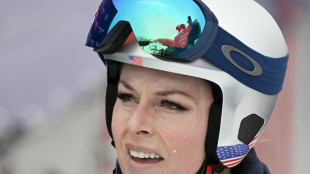
-
 US news anchor says 'hour of desperation' in search for missing mother
US news anchor says 'hour of desperation' in search for missing mother
-
Malen double lifts Roma level with Juventus

-
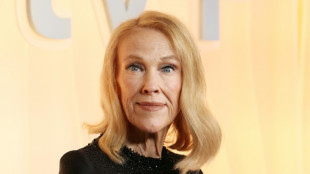 'Schitt's Creek' star Catherine O'Hara died of blood clot in lung: death certificate
'Schitt's Creek' star Catherine O'Hara died of blood clot in lung: death certificate
-
'Best day of my life': Raimund soars to German Olympic ski jump gold
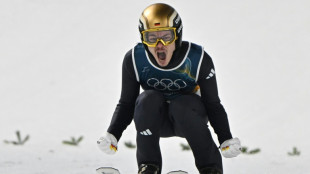
-
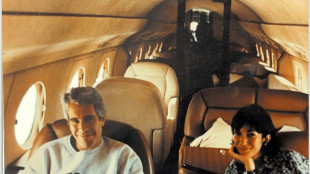 US Justice Dept opens unredacted Epstein files to lawmakers
US Justice Dept opens unredacted Epstein files to lawmakers
-
Epstein taints European governments and royalty, US corporate elite
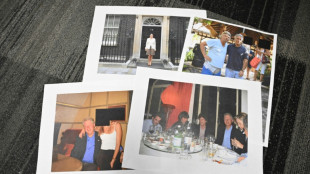
-
 Three missing employees of Canadian miner found dead in Mexico
Three missing employees of Canadian miner found dead in Mexico
-
Meta, Google face jury in landmark US addiction trial

-
 Winter Olympics organisers investigate reports of damaged medals
Winter Olympics organisers investigate reports of damaged medals
-
Venezuela opposition figure freed, then rearrested after calling for elections

-
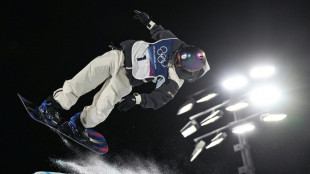 Japan's Murase clinches Olympic big air gold as Gasser is toppled
Japan's Murase clinches Olympic big air gold as Gasser is toppled
-
US athletes using Winter Olympics to express Trump criticism
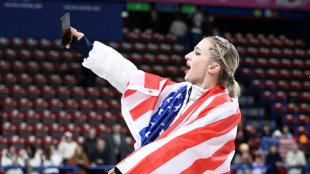
-
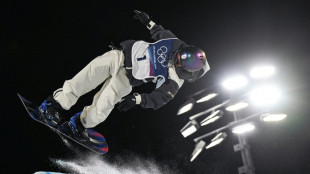 Japan's Murase clinches Olympic big air gold
Japan's Murase clinches Olympic big air gold
-
Pakistan to play India at T20 World Cup after boycott called off

-
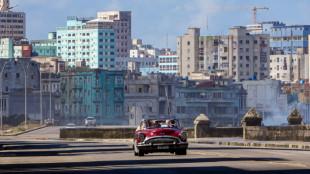 Emergency measures hobble Cuba as fuel supplies dwindle under US pressure
Emergency measures hobble Cuba as fuel supplies dwindle under US pressure
-
UK king voices 'concern' as police probe ex-prince Andrew over Epstein
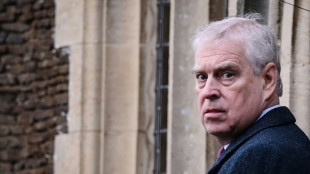
-
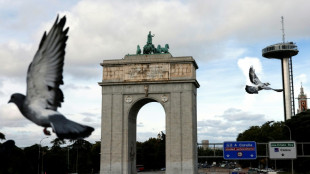 Spanish NGO says govt flouting own Franco memory law
Spanish NGO says govt flouting own Franco memory law
-
What next for Vonn after painful end to Olympic dream?

-
 Main trial begins in landmark US addiction case against Meta, YouTube
Main trial begins in landmark US addiction case against Meta, YouTube
-
South Africa open T20 World Cup campaign with Canada thrashing

-
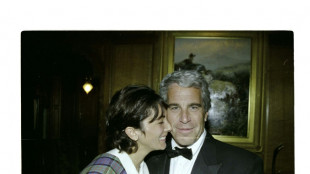 Epstein accomplice Maxwell seeks Trump clemency before testimony
Epstein accomplice Maxwell seeks Trump clemency before testimony
-
Discord adopts facial recognition in child safety crackdown

-
 Some striking NY nurses reach deal with employers
Some striking NY nurses reach deal with employers
-
Emergency measures kick in as Cuban fuel supplies dwindle under US pressure
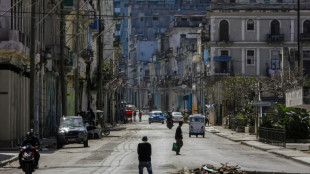
-
 EU chief backs Made-in-Europe push for 'strategic' sectors
EU chief backs Made-in-Europe push for 'strategic' sectors
-
Machado ally 'kidnapped' after calling for Venezuela elections

-
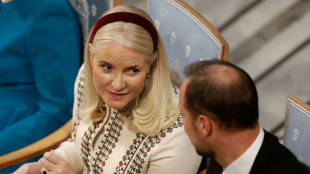 Epstein affair triggers crisis of trust in Norway
Epstein affair triggers crisis of trust in Norway
-
AI chatbots give bad health advice, research finds

-
 Iran steps up arrests while remaining positive on US talks
Iran steps up arrests while remaining positive on US talks
-
Frank issues rallying cry for 'desperate' Tottenham

-
 South Africa pile up 213-4 against Canada in T20 World Cup
South Africa pile up 213-4 against Canada in T20 World Cup
-
Brazil seeks to restore block of Rumble video app

-
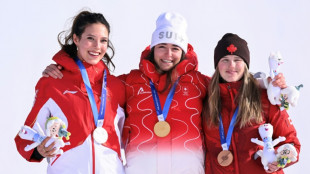 Gu's hopes of Olympic triple gold dashed, Vonn still in hospital
Gu's hopes of Olympic triple gold dashed, Vonn still in hospital
-
Pressure mounts on UK's Starmer as Scottish Labour leader urges him to quit
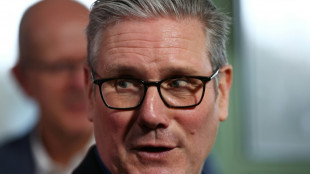
-
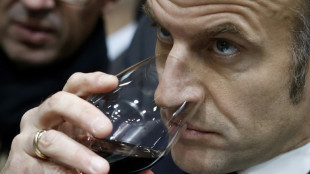 Macron backs ripping up vines as French wine sales dive
Macron backs ripping up vines as French wine sales dive
-
Olympic freeski star Eileen Gu 'carrying weight of two countries'
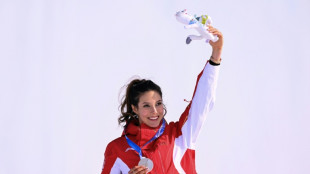
-
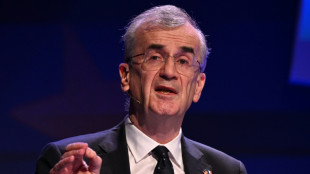 Bank of France governor Francois Villeroy de Galhau to step down in June
Bank of France governor Francois Villeroy de Galhau to step down in June
-
Tokyo stocks strike record high after Japanese premier wins vote


Inuit hunters blame cruise ships as narwhal disappear
To hunt the narwhal, whose long tusk was the unicorn horn of medieval myth, you need absolute silence.
So much so that the Indigenous hunters of the Scoresby Sound in eastern Greenland forbid their children from throwing pebbles into the water lest they spook the spiral-tusked whales.
Taught to hunt by his grandfather, Peter Arqe-Hammeken, 37, tracks narwhal during the brief Arctic summer.
But they are getting rarer and rarer.
For in this fjord brimming with icebergs, the quiet of the hunt has been broken by new arrivals -- cruise passengers rushing to see Inuit culture before it is too late.
This summer around 60 vessels ranging from sailing boats to large cruise ships arrived at the village of Ittoqqortoormiit at the mouth of the fjord system -- the largest in the world -- in the month when it was free of ice.
While some view Arctic tourism as a means to reinvigorate this remote community some 500 kilometres (310 miles) from the nearest settlement, others worry it could destroy the last surviving Inuit hunting societies.
"A week ago there were hunters out there, trying to catch narwhals. But there were a couple of ships going into them," Arqe-Hammeken told AFP, who said cruise ships were scaring off the wildlife.
"When they come to the village, it's okay. But when they come to the hunting ground, that's not good."
In the swiftly warming Arctic, where temperatures are rising up to four times faster than the global average, the Inuit are threatened at every turn.
- Vanishing hunting grounds -
"Hunters live from hunting here. They have kids," said Arqe-Hammeken, who was born and bred in Ittoqqortoormiit and fears for their traditional way of life, of which narwhal meat is a key part.
"Narwhals are very important for the community" and for Greenland food culture, said teacher Jorgen Juulut Danielsen, a former mayor of the village, with "mattak" -- raw narwhal skin and blubber -- a traditional delicacy.
The Inuit hunt the toothed whales with harpoons and rifles under strict quotas, with the once lucrative export of the tusks banned since 2004.
But climate change is squeezing the narhwal's habitat and scientists warn that they will disappear totally from eastern Greenland if hunting is not banned.
Numbers have fallen so much that hunters could not find enough to reach the quota in 2021.
Weaker ice because of warming is also making it difficult to stalk seals -- another staple of the local diet -- at their breathing holes in the ice.
"There's no ice now when before there was ice the whole year," said Arqe-Hammeken, looking out to sea from Ittoqqortoormiit.
His grandfather used to regale him with tales of catching seals just outside the village. Now hunters must journey deep into the fjord to find them.
"Thirty years ago there were a lot of hunters. Today there are only 10 or 12," said Arqe-Hammeken.
- Pollution from afar -
Nothing grows on the barren tundra, and with cargo ships only making it through the icy fjord once a year "it's important we get (our nutrients) from the animals we hunt here locally," said Mette Pike Barselajsen, who runs the local travel agency Nanu Travel.
"What we hunt is very important for our culture," she added, with traditional clothes like polar bear trousers and sealskin kamik boots still used for hunting and for religious ceremonies.
But in July a study in the Lancet Planetary Health found that the villagers had some of the world's highest concentrations of cancer-causing PFAS in their blood from eating seal, narwhal and polar bear, even though they live far from the sources of the pollution.
The "forever chemicals" from trainers, waterproof clothing, carpets, fire foam and pesticides are carried north on ocean currents before mounting the food chain to the Inuit.
With so much against them, some hunters are shifting to fishing halibut to supplement their income, said Danielsen. Others are turning to tourism.
- Last-chance tourism -
Ittoqqortoormiit and its colourful houses could hardly be more scenic, perched on a rocky peninsula overlooking the mouth of Scoresby Sound surrounded by glaciers.
Its once quiet paths are now filled with groups of cruise tourists snapping pictures of polar bear hides hanging from the houses.
"One wonders how people live here," said Christiane Fricke, a tourist from Germany drawn like many to experience the traditional culture before it disappears.
Many hunters are already guiding tourists or taking them dog sledding.
"It's a huge help for the hunters to have income from tourism as well," said Barselajsen.
But others are afraid that the cruise ships are making hunting unfeasible.
Danielsen, the former mayor, admitted there is conflict between those eager to embrace tourism and those who fear it could erode indigenous culture, especially hunting narwhals.
"Tourism definitely poses a threat to the traditional way of hunting and fishing in Ittoqqortoormiit," said geographer Marianna Leoni of Finland's University of Oulu, who knows the village well.
But the authorities are "desperately looking for any sort of opportunity to keep the village alive," she told AFP.
Tourists pay up to 20,000 euros ($21,000) for the cruises, with almost all of the money going to foreign companies. So the Greenland government is introducing a cruise passenger tax so locals get a share of the windfall.
But with the charge less than seven euros a tourist, the Inuit are not getting "much in return", said Leoni.
Y.Nakamura--AMWN



